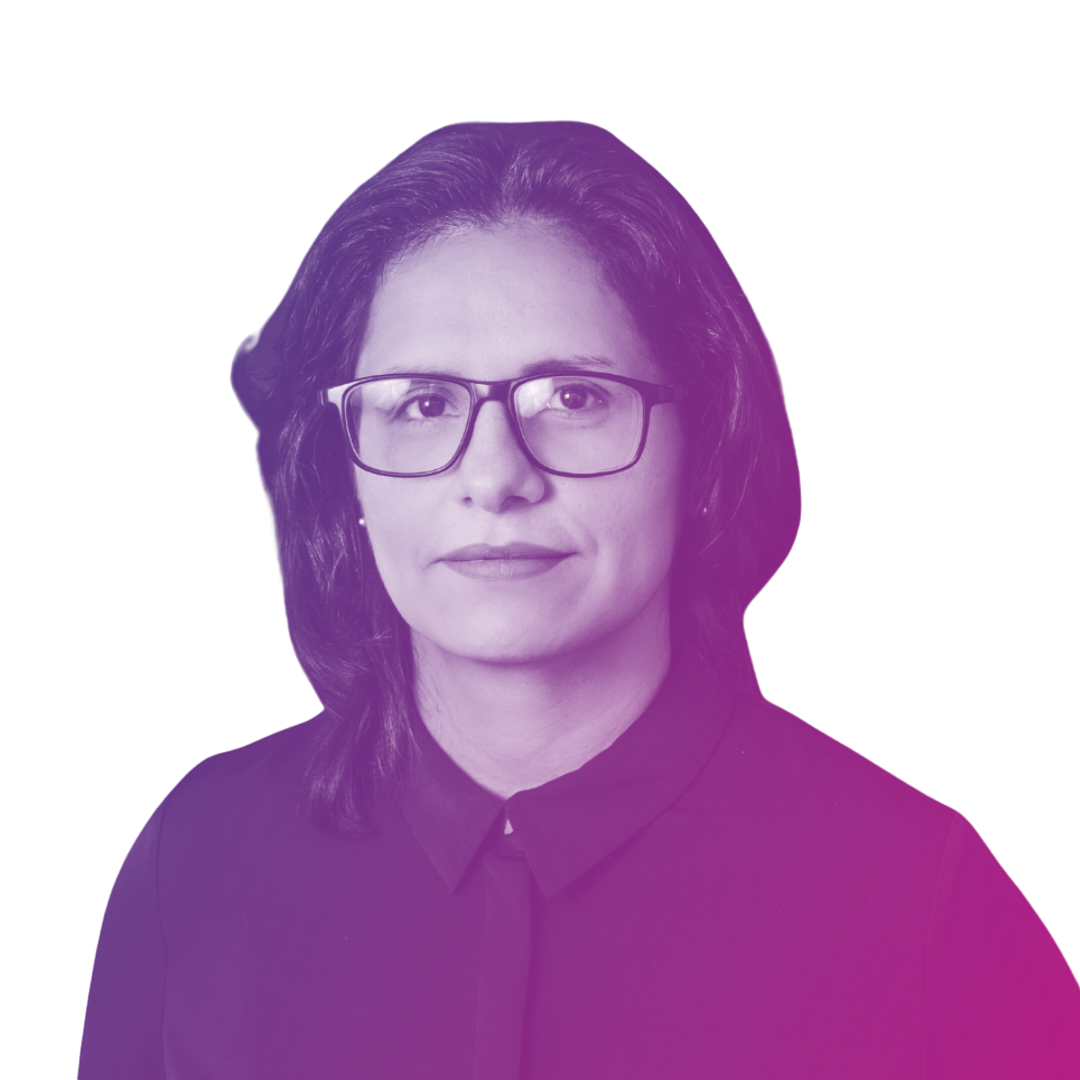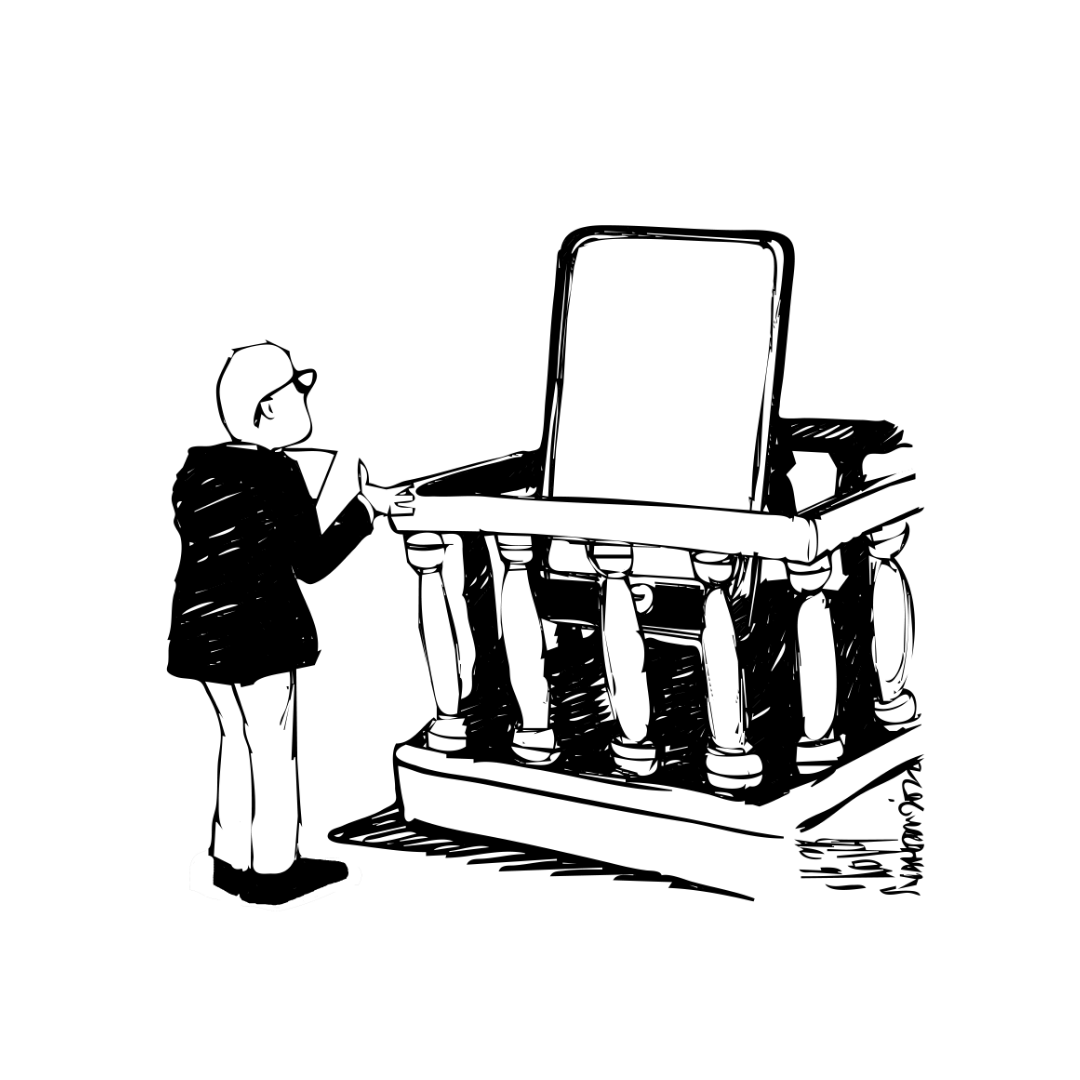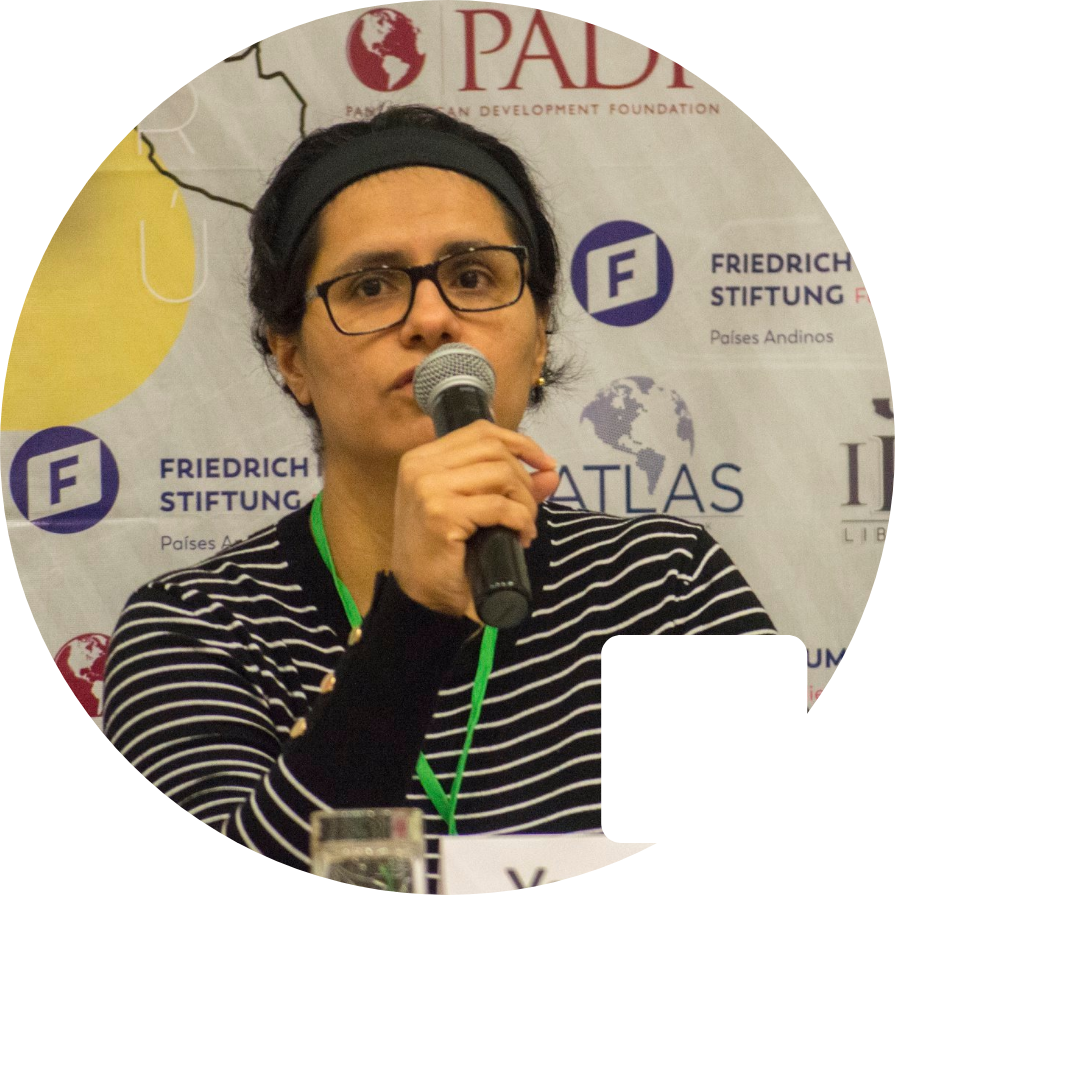
PERU
Yesenia Álvarez
Yesenia Álvarez is a lawyer and Director of the “Instituto Político Para La Libertad”, a Peruvian organization that promotes freedom and democracy in Peru, Latin America, and the Caribbean through democratic and human rights education. She is producer of the documentary “Cuba and the Elephants,” and co-author of the 2021 book “Libertad y Prejuicio” which contains reflections on the defense of LGBTIQ + rights. She received fellowships from the Latin American Visitors Program of the Foundation for Social Analysis Studies, and the CES-Centre for European Studies held in Spain and Belgium during 2011. Yesenia Álvarez has also been awarded the Friedrich Naumann Foundation scholarship on three occasions and attended the Leadership Training Academy in Gummersbach, Germany.
VITA
Yesenia Álvarez is a lawyer and Director of the “Instituto Político Para La Libertad”, a Peruvian organization that promotes freedom and democracy in Peru, Latin America, and the Caribbean through democratic and human rights education. She is producer of the documentary “Cuba and the Elephants,” and co-author of the 2021 book “Libertad y Prejuicio” which contains reflections on the defense of LGBTIQ + rights. She received fellowships from the Latin American Visitors Program of the Foundation for Social Analysis Studies, and the CES-Centre for European Studies held in Spain and Belgium during 2011. Yesenia Álvarez has also been awarded the Friedrich Naumann Foundation scholarship on three occasions and attended the Leadership Training Academy in Gummersbach, Germany.
Could you tell us about your current work in the fields of human rights and democracy promotion?
After I finished university, I worked for a while in public institutions. This experience led me to understand that changes towards a free and democratic society should come from the power of the civil society. This is the reason why we founded the Political Institute for Freedom (IPL) to promote the values of freedom through civic education. As part of my work, I am dedicated to strengthen the capacity of civil society leaders, where there is no democracy or it is threatened, such as in Cuba, Venezuela and Haiti. In Peru, we especially work on the defense of youth and LGBTIQ + rights and the training of young people in the field of human rights.
What motivates you in the defence of human rights?
I am convinced that the defense of human rights requires a strong component of civic education; and in order to defend the fundamental rights, it is necessary to multiply the knowledge about them among citizens. In my work at Political Institute for Freedom, I have helped to bring many young people and civil society leaders closer to the knowledge of human rights through training programs, in which we explain the functioning of the Inter-American and universal protection systems. We encourage them to use such instruments. I consider myself a human rights defender who helps other human rights defenders. My work has consisted of supporting groups of defenders from undemocratic societies. I have led the process of preparing six documented human rights reports that have been presented to international human rights protection bodies, such as the Inter-American Commission on Human Rights and the United Nations Committee on the Rights of Persons with Disabilities.

A great commitment. Have you been subject to attack in this regard?
In 2007, four members of my organization and I, along with 15 activists from other countries, all women, traveled to Cuba on the eve of International Human Rights Day to express an act of solidarity in Havana with “The Ladies in White”, who used to protest in the Church of Santa Rita every Sunday for the freedom of their relatives. This led us to be detained and interrogated by the regime, and eventually expelled from Cuba. It inspired me to make a documentary called "Cuba and the Elephants". It seeks to reflect on the repression that have been proclaimed by the dictatorship and what the Cuban people really experience.
You also support human rights defenders in your work. What are the main obstacles for human rights defenders?
The obstacles to the human rights defenders in closed societies are mainly repression, persecution with imprisonment, impediments to leave the country and the impossibility of keeping a fluent and safe communication within and outside of those countries. All this affects the defenders spirit and also those of us who help them from outside. The regimes and dictatorships know this and try to wear down human rights defenders by threatening them with jail. This is what my regional work is about. In Peru, we and several other organizations took a civic initiative in order to seek recognition of civil unions for same-sex couples, since there were no changes through the parliament or other legal channels. We wanted to file an action of unconstitutionality by omission before the constitutional court so that the issue could be discussed. For that, we needed to collect 5,000 signatures. It was extremely difficult to get the signatures on the streets, because there is still much homophobia, not only within the state apparatus but also in the society itself. We could not win this battle due to the lack of signatures; however, it taught us that we must multiply the efforts for education that includes training on sexual diversity and inclusive culture.

“In order to defend the fundamental rights, it is necessary to multiply the knowledge about them among citizens.”
Have you been confronted with disinfromation in your quest for defending human rights?
In Cuba, the regime that invents disinformation campaigns about human rights defenders and activists in their country included us in that disinformation campaign calling us “mercenaries and anti-revolutionaries”. The government tries to discredit their opponents who fight for the democracy and freedom, and those of us who help them so that we are intimidated and stop helping them.
What do you think will help to defend human rights in a best manner?
I believe in international democratic cooperation and solidarity very much. I think that a window that helps to better defend human rights is the fact that people and organizations connect among ourselves, cooperate, and help each other beyond the borders of our countries. An abusive government must know that the defenders are not alone. It will be encouraging for the defenders to also receive moral support in order to continue fighting.
Peru
